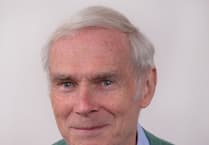THE verdict was due to be announced this morning (Friday) on a case taken to the European Court of Human Rights by a West Meon motorist – and it could mean a radical rethink of the use of speed cameras in Britain. Idris Francis, a retired company director, is one of many campaigners who claim that requiring car owners to reveal details of who was driving a vehicle caught speeding on camera is a breach of their right to silence. And last September, the human rights group Liberty backed him and another British motorist in the European courts in Strasbourg after British courts threw out their arguments. The cases of Mr Francis and Londoner Gerard O'Halloran were taken to the Grand Chamber, reserved for special cases, and were heard by 21 judges instead of the usual seven. And lawyer James Welch, of Liberty, said if the two motorists were to win their landmark cases the British government would have to find new ways of collecting evidence for motoring offences. The verdict on the two cases was due to be announced shortly after 8.30am UK time at the European Court of Human Rights in Strasbourg. Four of Mr Francis' supporters are travelling to Strasbourg to hear the verdict. They will immediately telephone him in London with the news. Mr Francis will be waiting at the Royal Air Force Club in Piccadilly, where he will be holding a press conference with the founder of the Safe Speed Road safety campaign, Paul Smith. As The Herald went to press on Wednesday, Mr Francis said: "I am optimistic about the verdict. The legal case seems to me to be absolutely clear cut." He added: "It has been illegal in this country for 400 years to use threats to obtain confessions and the only people currently subjected to that evil regime are drivers." He said anybody who actually killed or maimed in accidents on the road retained their right to silence, adding: "It's only people who don't have accidents who lose the right." He said he had been encouraged by questions from the European Court of Human Rights judges last year. "They asked things which suggested they saw what matters," Mr Francis told The Herald. "One of the judges asked how many other criminal offences in Britain had no rights to silence, and the answer is 'none'." Mr Francis had been waiting five years when his case came up at the European Court of Human Rights on September 27 last year. The owner of five vintage cars, he hit the headlines in June 2001 when he was convicted at Guildford Magistrates' Court of driving an Alvis Speed 25 at 47mph in a 30mph speed limit. He was fined £750 and given three penalty points on his licence. Under the Statute of Limitations, he refused to admit he was the driver of the car. And he announced then that he would take the case to the European Courts, claiming that the camera laws breached his rights to silence under the Human Rights Convention. Mr Francis was back in court just over two years later when he was found guilty by Aldershot magistrates of failing to identify the driver of his Jaguar Sovereign V12 saloon which was caught on camera at Whitehill being driven at 41mph in a 30mph zone. He was fined £60 with £364 costs but appealed in the High Court in March the following year. But he faced an £8,000 legal bill when the appeal was dismissed after a two-hour hearing. After the case was heard last September Mr Smith, who believes cameras divert motorists' attention away from the roads, said that British justice was being "undermined for the sake of nothing more than needless mass prosecutions". The Alvis at the centre of the Strasbourg case has been in Mr Francis' vintage car collection for 34 years and he has driven it more than 60,000 miles. As well as the Alvis and the Jaguar Sovereign, he also owns another Alvis and a Bentley Continental. The Alvis has featured on television in the Ruth Rendell Mysteries and in Kenneth Brannagh's big screen adaptation of Love's Labours Lost. Before the verdict was announced, Mr Smith told The Herald: "This case is extremely important to road safety. If it kills off speed cameras – and I hope it will, at least for a while – it will be a great day for road safety and a great day for justice."



